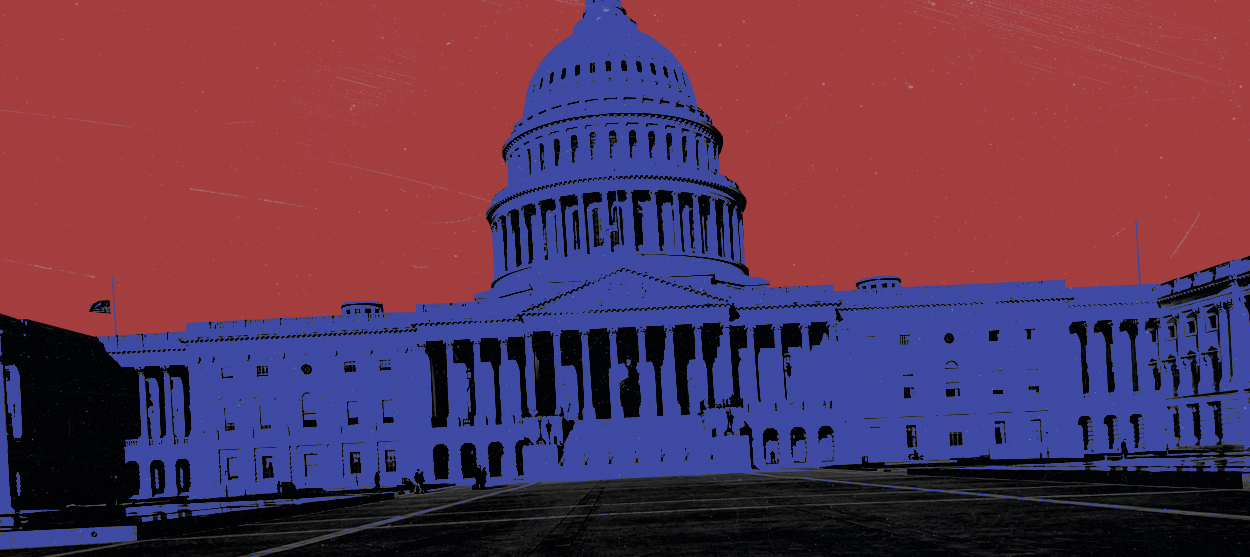The House closes for business
Why the March 4 shutdown is a small victory for Trump's anti-democratic supporters


A free daily email with the biggest news stories of the day – and the best features from TheWeek.com
You are now subscribed
Your newsletter sign-up was successful
There will be no business done in the U.S. House of Representatives today. The chamber is closed because of fears that QAnon conspiracy theorists — who believe that March 4 is the real presidential inauguration date — may storm the Capitol in a bid to restore former President Donald Trump to power.
"We have obtained intelligence that shows a possible plot to breach the Capitol by an identified militia group on Thursday, March 4," the Capitol Police said in a statement. "We are taking the intelligence seriously."
The Capitol is still surrounded by barbed wire fences, and remains protected by hundreds of National Guard troops, but the memories of the violent Jan. 6 insurrection are still fresh enough that officials decided to err on the side of caution. (On the House side anyway; the Senate will proceed with normal business.)
The Week
Escape your echo chamber. Get the facts behind the news, plus analysis from multiple perspectives.

Sign up for The Week's Free Newsletters
From our morning news briefing to a weekly Good News Newsletter, get the best of The Week delivered directly to your inbox.
From our morning news briefing to a weekly Good News Newsletter, get the best of The Week delivered directly to your inbox.
"Obviously from a security standpoint, it's better to have us scattering to the four winds as opposed to all concentrating in one building," Rep. Jim Himes (D-Conn.) told the New York Post.
The caution is understandable, but also aggravating. If there were any doubts that American democracy remains exceedingly fragile after Trump's attempt to undo the 2020 presidential election, let them be put to rest. Nothing that happens today — not even an outburst of violence — will change the fact that Joe Biden was elected president. But the business of the people will be put on hold for a day because of the threat of more political violence, and that reality is sobering.
The shutdown is also a victory for those who threaten that political violence. (And let's be clear, that potential threat isn't coming from Antifa, but from Trump's fervent right-wing acolytes.) It is rarely the case that extremists expect to win their objective through violence alone — Trump doesn't have an army that could defeat the United States Army on an actual battlefield. Instead they aim to cause disruptions and fear in hope of wearing down their opponents' resolve.
It is for this reason that, in the weeks and months after 9/11, Americans urged each other to carry on with normal life "or else the terrorists have won." The phrase became overused past the point of becoming a punchline — two weeks after the attacks, then-President George W. Bush urged Americans to take their families to Disney World, which seemed to trivialize the situation — but there was a serious underlying sentiment.
A free daily email with the biggest news stories of the day – and the best features from TheWeek.com
These kinds of disruptions are becoming the norm, though, not because foreign attackers pose a threat to American institutions, but because homegrown citizens use the language of armed force to buttress their demands. In May, the Michigan capitol was closed so legislators weren't forced to face down armed protesters seeking to "liberate" the state from coronavirus restrictions. In June, the Oregon capitol building was shut down over concerns of a "possible militia threat" during debates over a climate change bill. And of course, the Jan. 6 insurrection during Congress' certification of the Electoral College vote will live a long time in the memories of those alive to witness it.
The New York Times reports that authorities believe today's "possible plot" might be more aspirational than operational — potentially a bunch of disaffected dreamers talking big online about plans that will never come to fruition. House leaders might be overly skittish. Then again, they are working in a recent crime scene. And for what it's worth, both the Times and Mother Jones note that rates at the Trump Hotel are unusually high today, signifying higher-than-normal occupancy. If anybody has earned the right to be overly cautious, it is the people who just two months ago were forced to flee actual attackers.
Still, that means there are two groups of people involved in today's shutdown: The radicals who created a climate of fear, and the House leaders who have decided how to react. I am not inclined to tell public servants that they should risk their lives just to strike a pose of defiance, particularly if they might already be suffering some form of post-traumatic stress. But the decision to suspend business in the House grants a tiny, fleeting moral victory to anti-democratic forces. The extremists haven't won, at least not yet. The shutdown suggests they haven't entirely lost, either.
Joel Mathis is a writer with 30 years of newspaper and online journalism experience. His work also regularly appears in National Geographic and The Kansas City Star. His awards include best online commentary at the Online News Association and (twice) at the City and Regional Magazine Association.
